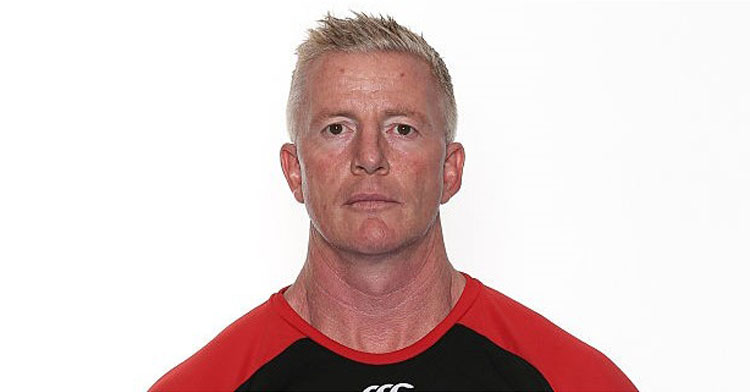A highly regarded strength and conditioning coordinator, John Pryor, rugby training expert, is perhaps best known for his work with the Japan Rugby Football Union. In his role as the strength and conditioning coordinator for the national team, John played an integral role in what most consider the greatest upset in the history of World Cup rugby when Japan defeated South Africa. Utilizing a highly specialized and integrative training program, John oversaw tremendous fitness gains in his athletes that certainly played a major part in Japan’s surprising and historic victory.
John Pryor is also the director of JointAction Group, a company that strives to prevent musculoskeletal injuries through a variety of strategies and in a number of different settings. In his role with the company, John provides his insight and expertise regarding biomechanics in helping to achieve a desired outcome. In addition to his role with JointAction, John has also continued to write and publish articles relating to his research and findings in his many different fields of expertise. A successful competitor in many sports, such as Australian Football, martial arts and track and field athlete, John Pryor believes that an understanding of biomechanics and physiology can be powerful tools for athletes competing at an elite level of sport.
A graduate of Southern Cross University, John holds a Master of Health Science in biomechanics and has continued to pursue educational opportunities whenever possible. According to John, this habit is a large part of the reason that he has been able to develop and implement so many innovative training strategies over the course of his career. Relying on his insight along with input from the athletes he trains, John is widely regarded as one of the most knowledgeable and effective strength and conditioning coordinators in international rugby. Working with the Japan Rugby Football Union since 2012 and with JointAction since 2008, John brings a great deal of experience and expertise to all of his professional endeavors.
What was your best/favorite subject in school?
I had an early interest in all of the sciences, and when I became more involved in athletics I found myself drawn to the study of exercise physiology and biomechanics in particular.
What was your first job?
My first job in my field was as a lecturer in statistics while study for my masters Degree. After that I gained a full time position as a sports analyst for NSW Department of Sport. I had two great mentors there helped me immensely.
Where and how did you first get into the industry you currently work in?
I had just finished my masters degree in biomechanics and was commencing PhD studies. I presented my research at two large conferenes. A well known sports analyst followed me at asked tough questions at both conferences. I guess I must have answered reasonable well as he offered me a job as a sports analyst a week later. This eventually led me to rugby, which I was completely unfamiliar with at the time.
How have those jobs prepared you for what you do now?
I was able to gain a deep understanding of how things were done in a traditional sense along with the aspects of these traditional training methods that were most effective. This allowed me to improve upon the areas that I felt were inefficient while only slightly modifying other aspects of training to achieve really exceptional results. I was exposed to some great thinkers early on in my career, and I am a good listener. I was always inclined to listen careful to ideas, then get underway with experimentation myself, even if it was only with small groups.
Describe the best day of work you’ve ever had.
It was simply a magnificent day when we defeated South Africa in the World Cup and left the rugby world completely stunned. I just felt so happy for our players. The head coach and I had put them through a torturous six month preparation, and it was a great reward.
How do you keep yourself motivated?
My athletes push me just as hard as I push them, and that is the way I hope it will remain for many years to come. And there are many inspiring people in my line of work. I always keep in contact with my mentors also. People near the end of their careers are very generous with information and advice. Many people overlook them for the “next guru”, but this is short sighted.
What kind of business ideas excite you most?
I am excited by the ideas that come from great attention to detail and thorough research, as these are the ideas that are truly poised for success.
Have you ever tried any unorthodox techniques to attract attention to your business?
As someone who is keenly interested in research and athletic performance, I write a lot of articles for academic journals and other publications, but it is hardly an unorthodox way to promote my business endeavors.
What personal achievement are you most proud of?
I am most proud of the fact that every athlete I have worked with has taken something positive away from the training we have done together. I am proud of the work I do with sportspeople, but also the work I do in industry as well. I take it as a great honour to be in a position to positively impact someone’s health, fitness and success.
What wisdom you would have liked to share with yourself when you first started out?
I would tell myself that it is important to explain ideas to athletes in simple terms that get the point across rather than insisting on using complex terminology they may not be readily familiar with. The goal is to educate and inform the athletes, not to prove to them you know what you’re talking about.

